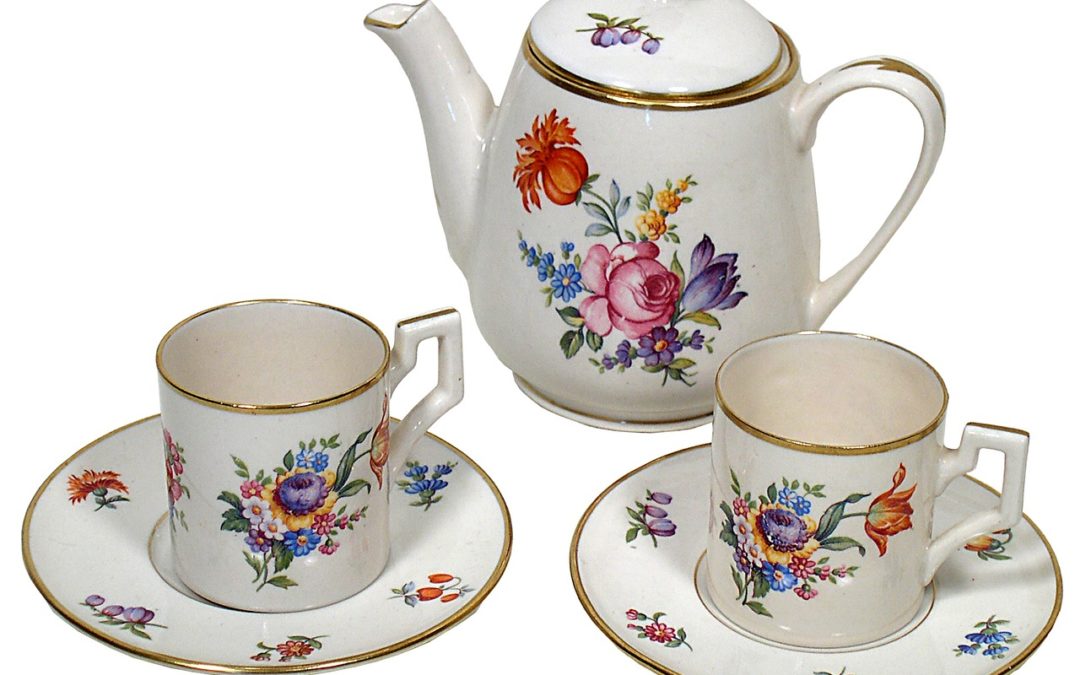
by admin | Oct 21, 2021 | Declutter
So many approaches to hoarding, decluttering, letting go and to dealing with the mess in our homes are rational in their style. But we are not rational creatures, we are human beings. Better put we are 'humans being'. That means we are all emotional, that we attribute meaning to almost everything we do, see and to all of our actions around the topic of decluttering.
So every item in the home has some form of emotional attachment for us. It could be a pencil, a shirt, a saucepan, a pair of shoes or a box of toys. The single biggest obstacle to us making a good job of dealing with the stuff we have accumulated is the sentimental obstacle. We may feel we have to climb over it, step around it, or crawl underneath it, but deal with it we must if we are to make progress in any way at all. Every object in your house can have some emotional pull on you, normally associated with a memory or an image in your head about when you acquired it, who gave it to you, how you were feeling when you bought it. Each of these feelings, memories and reminiscences take up so much space in your head. Sometimes I am amazed I get anything done for all the things in my mind! These are all competing for your attention and there is only so much time you have to deal with each thought or emotional response.
When deciding to deal with the clutter that surrounds you and which overwhelms or drags you down emotionally, you are going to have to be tough with yourself. The decisions you make about what goes and what stays will be hard ones a lot of the time. But once made they should put you in a better place emotionally. In order to get results that last and which make a difference in your home environment, if you pick up every item and handle it, you then have to make a choice over what to do with it. The action of touching each thing strengthens your emotional connection to the decluttering process. You might be telling yourself that you have to keep something for sentimental reasons, but what are they? Could you justify them to a friend?
If the thing you hold cannot be placed on display in your home, then lose it. Let it go. If the item is not worth keeping in a readily accessible part of your house, and I do not mean a box in the basement or a bag in the attic, it has to go. Your task is to keep things which bring value or happiness, which support the life your choose or which should accompany you on the downshift lifestyle you seek. If everything has emotion attached to it, then you are going to keep only those items which are imbued with good, special and treasured feelings.
As with every day in which you are discarding things from your home space, be aware of how you feel as you let go of them. Be mindful of the emotions you associate with a selection of items, or the box you fill with things for the goodwill. Continue to be grateful for your observations and, if it helps to note them down, get them captured and summarised in your journal. You may let go of the items, but you will still have access to the way you felt about the process and it takes up virtually no space to store your thoughts on some special pages. You can keep the simple journal in place of the much larger volumes of stuff you are now able to let go of.

by admin | Oct 7, 2021 | Declutter
For sure, you won a track award when you were seventeen. You gained a silver cup for a move on the sports field when you were at college. In your first job you achieved Employee of the Month four times in a row! But why do you still have them on your shelf or pinned on the wall in your den?
We hold onto such things because they strongly represent our previous achievements, or perhaps our goals and dreams. Some of these we were chasing and then gave up or perhaps simply changed direction. Others we feel are an important part of our life right now and we still consider that we are pursuing that goal in our actions every week. These are items which the emotional attachment makes very difficult to let go of. Sports trophies from when we were at our physical peak, framed team pictures from another life, motivational posters from a business we were a part of, or painting supplies and blank canvases we thought we would have used by now in developing our skills and hobbies to a better level.
We struggle to let go of these because it feels brutal and painful to face the fact that we didn't achieve this goal or that dream. We feel like we messed up or we broke the promise we made to ourselves. I can relate to this. I have USB sticks of unfinished manuscripts. I have the bronze and silver award for a prestigious young person program here in England, but never managed to finish it and earn the gold award. That is something I have regretted for years, and I remind myself how much pleasure it was to achieve the first two awards and the good things I did to accomplish these levels. We had community service projects, volunteer activities, expeditions in the countryside and camping trips where we learned map reading, teamwork and survival skills. These were very positive times in my teenage years and I loved the activity, teamwork, the leadership and guidance we received and think fondly of these times. But that was several decades ago!
Connecting with the emotions of this theme of letting go of previously aspirational clutter can help you to become free of the feelings we associate with not completing goals. Put these thoughts to bed and look now to find new goals and opportunities where you wisdom and enhanced skills will give you an advantage and allow you to start strong with what you have. When you discard the things which represented old aspirations you have not failed at those. You instead need to be gentle with yourself and recognise the goals and points of focus for the life you lead today.
Letting go of unfinished projects, discarding items that you have been unconsciously aware of not completing, and clearing out old resources you will never use to help you with your current goals, this can be immensely satisfying and liberating. Forgive yourself for not accomplishing what you had once been convinced you were going to do.
Consider creating a virtual Memory Box - take digital pictures of many of the items you have struggled with releasing, even though they no longer represent who you are today. Either you want to have them in your home space or your don't. It really is this simple in reality. In practice however, we know that life does not exist in a purely black and white, binary way. Save images of the things you like, but which you would not willingly go out and accumulate again. The pictures are things you can always go back to if you have that sense of nostalgia for the item.
Letting go of these old aspirations, for something that has probably not been a part of your life for some years, will free you up for new and inspiring opportunities and activities. This is where your focus needs to be, on your current goals and aspirations. These are the ones that matter right now.

by admin | Oct 6, 2021 | Simple Self Help
Given the ease with which shops and retailers offer credit to all who they deal with, it is easy to collect plenty of personal debt seemingly without trying too hard. If you are already working with debt in your life then you need to take action on reducing your debts.
Understand exactly how much money you owe. Draw up a comprehensive list of all the companies and people you owe money to. Be honest with yourself in doing this process. Open every envelope that is sent by the people you owe money to. Keep them all in one file and in a place where you can refer to it quickly. Stay in regular communication with your creditors (your Creditor is the person who has given you credit as opposed to a Debtor who is someone owing you money), and let them know what is happening - even when you have no money, and nothing is happening to reduce your debts and the amount that you owe.
Get clear on the numbers, and you can be clear on your options.
Dealing with the bills and the debts that you have is best done with a focus on the interest rates that are highest. Split your available funds for debt repayment such that you are making the greatest inroads on the ones that are costing you the most.
Keep a strict and accurate handle on the paperwork related to your debt situation and ensure that you stay away from other opportunities to waste money. Your priority is to deal with the existing debt and reduce it down to nothing, however long this task takes you.
Maintain regular payments to all your creditors even if the amount you pay each month seems tiny to begin with. As you pay down the high interest debts and eventually pay them off, take the amount that was your regular payment and throw that at the next highest interest rate until that is gone too. Over a period of time you will see the same benefits of compounding in your successful debt reduction as you are looking forward to in the accumulation of future savings. Remember that it is not just the regularity of the small payments, but also the fact that you are communicating with your creditors regularly.


